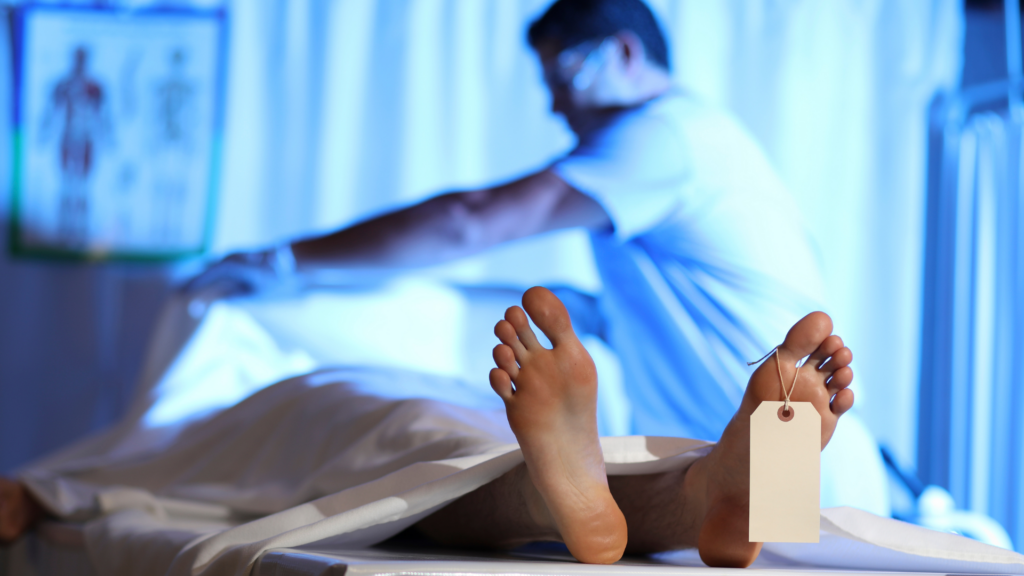Belgium sees 75 murders go undetected every year due to a lack of funding. Autopsies rarely take place as doctors working within the justice system struggle with unpaid invoices and heaps of paperwork.
While it is difficult to estimate the exact number of homicides that escape criminal justice because they have indeed not been detected, late confessions and other factors can serve as an indicator, said Dr Jean-Pol Beauthier, from the Charleroi Centre of Medical Sciences.
According to a KU Leuven study, around 75 murders go unnoticed every year.
Juridical doctors sounded the alarm in Le Soir on Monday, as the EU recommends that an autopsy is performed in at least 10% of all deaths. In Belgium this only happens in 1 to 2% of cases, the doctors say.
In other countries, the rates are far higher: 8% in Germany, 24% in the UK and even 30 to 50% in the Scandinavian countries. “In Finland, one in two deaths gives rise to an autopsy. It’s a different mentality from ours,” Dr Beauthier told Le Soir.
According to the experts, 15% of the deaths declared as “natural” are in reality not natural at all. They say that with €20 million per year, there would be fewer undetected homicides.
Suspicious deaths
General practitioners are the ones who generally make the call whether to carry out an autopsy or not, but it is not always straightforward. Family doctors have close relationships with the mourning families, and some believe this makes it difficult to announce that the death could be suspicious.
More importantly, GPs are not trained to detect the signs of discreet homicide. Sometimes, they are put under pressure by the police, as police budgets don’t always allow a full investigation.
Related News
- Ardennes murder trial to begin on 25 April
- Student hazing: 'Sanda didn't cheat and it cost him his life'
“We have had several complaints from doctors who would have liked to declare a suspicious death and who were put under pressure by the police to write a statement of natural death,” said Dr Philippe Boxho, ex-vice-president of the Order of Physicians.
Sometimes, it is funeral directors who need the certificate of natural death to be able to return the body to the family. However, in other cases, it is exactly those directors who notice a suspicious death.
Moving forward
A bill tabled by neurosurgeon Jacques Brotchi in 2012 aimed to regulate the post-mortem examination and organise a more systematic presence of an expert when a death might seem suspicious.
However, the bill was never adopted - though legal expertise is not that expensive, Dr Brotchi said. “Obviously, if the death is suspicious, this will have a cost for society with the investigation and possibly other legal consequences. But we are here for that: to protect society!”
Currently, discussions with Justice Minister Vincent Van Quickenborne’s office are said to be underway in an attempt to put the project back on the agenda.

